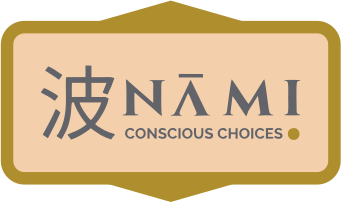
Embracing Ethical and Sustainable Practices: The Benefits of Bagasse Packaging for Food Items

1. Environmental Impact: Bagasse, a byproduct of sugarcane processing, is a natural and renewable resource. Using bagasse for packaging helps reduce the dependence on non-renewable resources like traditional plastics. It also aids in diverting agricultural waste from landfills, contributing to a more circular and sustainable approach.
2. Biodegradability: Unlike conventional plastic packaging that can linger in the environment for centuries, bagasse is biodegradable. This means that Nami's packaging breaks down naturally into organic materials, leaving behind no harmful residues. This property significantly reduces the environmental impact and pollution associated with packaging waste.
3. Energy Efficiency: Bagasse production requires less energy compared to the manufacturing of traditional plastic or even other bio-based alternatives. Choosing bagasse packaging aligns with Nami's dedication to energy efficiency and minimizes the carbon footprint associated with packaging production.
4. Closed-Loop System: Bagasse packaging contributes to a closed-loop system by utilizing a byproduct that would otherwise be discarded. This aligns with the principles of sustainability by maximizing resource efficiency and reducing waste in the food industry.
5. Versatility and Durability: Bagasse packaging is highly versatile and can be molded into various shapes and sizes. It is sturdy and durable, providing reliable packaging for food items. This ensures that Nami's commitment to sustainability does not compromise the quality and functionality of the packaging.
6. Consumer Appeal: Ethical and sustainable practices resonate with today's environmentally conscious consumers. By opting for bagasse packaging, Nami sends a powerful message to its customers about its dedication to preserving the planet and promoting responsible consumption. This can enhance brand loyalty and attract a growing market segment focused on eco-friendly choices.
7. Regulatory Compliance: With increasing regulations around environmental sustainability and plastic use, bagasse packaging aligns with and often exceeds regulatory requirements. This ensures that Nami stays ahead of compliance issues while contributing positively to the environment.
Conclusion:
Nami's commitment to ethical and sustainable food packaging is exemplified through the adoption of bagasse packaging. This eco-friendly alternative not only aligns with environmental goals but also meets consumer expectations for responsible and conscientious business practices. As the world strives towards a more sustainable future, Nami's embrace of bagasse packaging serves as a commendable step towards creating a healthier planet for current and future generations.









